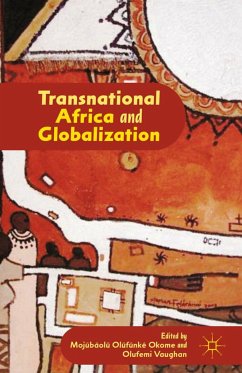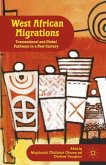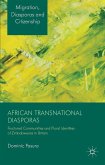The dawn of neoliberal rationality in Africa in the 1980s coincided with a massive exodus of skilled Africans to the global North. Moving beyond the 'push and pull' framework that has dominated studies of this phenomenon, this collection instead looks at African transnational migrations against the backdrop of rapid and intensifying globalization.
'At a time when it is becoming difficult to encounter fresh analysis of Africa's experiences in the age of globalization, Okome and Vaughan offer us a compelling and stimulating volume which forces us to rethink our assumptions about globalization and the forms of transnationalism provoked by this phenomenon. Through the analyses of the historical trajectory of globalism, remittances, religious and racial encounters, (im)migration and displacement, gender, and pedagogy, this volume challenges received ideas on the structures and strictures of globalization, while offering alternative readings of the conditions and different forms of African (both continental and diasporic) agencies which continue to (re)define transnationalism.' Wale Adebanwi, assistant professor, African American and African Studies, University of California-Davis
'Scholars have usually deployed the 'push and pull' explanatory model to explain why the African continent is hemorrhaging human capital,and why the wealthy industrialized countries have, almost literally, been on the 'receiving' end. This volume attempts to transcend this model by looking instead at African transnational migrations against the background of rapid and intensifying global transformation. In the process, it privileges a dimension that is often neglected in recent accounts of transnational migration the way in which the transnational process as a whole is largely a function of the remarkable adaptability and persistent innovativeness of actual migrants.' Ebenezer Obadare, associate professor of Sociology, University of Kansas
'Scholars have usually deployed the 'push and pull' explanatory model to explain why the African continent is hemorrhaging human capital,and why the wealthy industrialized countries have, almost literally, been on the 'receiving' end. This volume attempts to transcend this model by looking instead at African transnational migrations against the background of rapid and intensifying global transformation. In the process, it privileges a dimension that is often neglected in recent accounts of transnational migration the way in which the transnational process as a whole is largely a function of the remarkable adaptability and persistent innovativeness of actual migrants.' Ebenezer Obadare, associate professor of Sociology, University of Kansas








